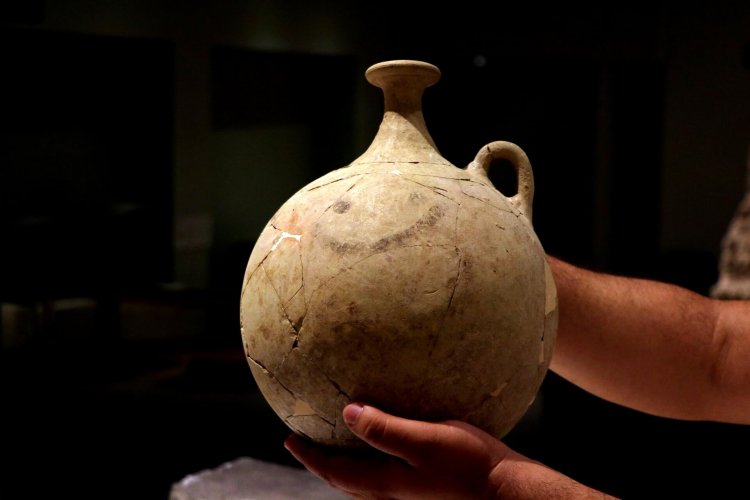World's Oldest 'Smile Emoji' Unveiled: 3,700-Year-Old Treasure in Gaziantep Archaeology Museum
Discover the world's oldest 'smile emoji' on a 3,700-year-old water bottle unearthed in Karkamış, Turkey. This ancient artifact will soon be on display at the Gaziantep Archeology Museum. Explore the rich history of Karkamış and its significance in the Hittite period.

In a surprising archaeological discovery, a 3,700-year-old water bottle with what can only be described as the world's oldest "smile emoji" has been found in Karkamış, Gaziantep, Turkey. This fascinating artifact is set to make its debut at the Gaziantep Archaeology Museum, offering a captivating glimpse into the history of Karkamış and the Hittite period.
Karkamış: Ancient Capital of the Hittite Civilization
Karkamış, once the thriving capital of the Hittite civilization, is situated on the banks of the Euphrates River. Ongoing excavations, led by Professor Nikolo Marchetti, have unveiled a range of intriguing relics from this ancient city. Among these treasures, a unique single-handled terracotta bottle, dating back to the Middle Bronze Age, has emerged as a remarkable find from approximately 3,700 years ago.
A Museum's Excitement
Museum director Özgür Çomak shared his excitement about this extraordinary discovery, calling it "our first artwork with a smiling emoji in the world." The meticulously restored artifact is now ready to take its place in the museum.
Viral Social Media Buzz
The revelation of this ancient "smile emoji" water bottle garnered widespread attention and enthusiasm on social media. The idea that the smile emoji we use daily has roots stretching back 3,700 years naturally piques curiosity and fascination.
Ongoing Archaeological Excavations in Karkamış
Ongoing excavations in Karkamış, the southern capital of the Hittite Empire, are being led by Professor Marchetti from Italy's Bologna University Archaeology Department and Associate Professor Hasan Peker from Istanbul University. They receive scientific consultancy from Istanbul University's Professor Refik Duru and Professor Belkıs Dinçol, as well as Gaziantep University's Professor Mustafa Özakça.







